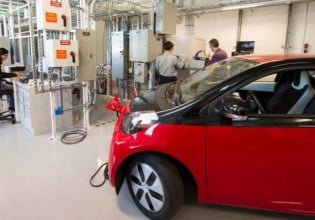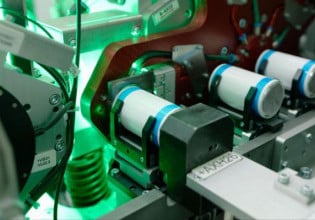Addionics and Saint-Gobain Ceramics Partner for Solid-State Battery Development
Addionics and Saint-Gobain enter into a partnership to develop next-generation solid-state lithium-ion batteries for electric vehicles.
Addionics IL Ltd. is an Israeli/U.K. startup that specializes in the redesign and performance improvement of rechargeable batteries. Recently, the company entered into a partnership with Saint-Gobain Ceramics and Plastics, Inc. The American company uses its expertise in materials science and manufacturing technology to provide performance ceramic and refractory solutions for metallurgical, automotive, building and habitat, defense and security, life sciences, oil and gas, energy industries, and more. Together, the two companies will be developing next-generation solid-state lithium-ion batteries (LiBs) for long-range, fast-charging electric vehicles (EVs).
Image used courtesy of Addionics
The BIRD Energy Program
Both Saint-Gobain and Addionics will be developing batteries with innovative electrode components to ensure that they can provide greater power and energy storage capacity. This collaboration is a part of the U.S. BIRD (Binational Industrial Research and Development) Energy Program. The program fosters collaboration between Israeli and U.S. companies with the combined goal of generating environmentally friendly, energy-efficient, and economically beneficial technologies for the future of humanity. In an announcement released by the U.S. Department of Energy (DOE) in December of last year, the department stated that approved research and development projects could expect to leverage $10.25 million in cost-share for a total project value of $17.4 million. Project areas under focus include sustainable transportation, electricity storage, eco-engineered concrete, and energy efficiency.
In a recent press release, Deputy Executive Director of Business Development & BIRD Energy, Limor Nakar-Vincent, commented: “We are excited to support this partnership between the Addionics and Saint-Gobain and we look forward to the technological advancements they will make. This project is of great interest to both countries seeking developing and commercializing clean energy technologies that support innovative technologies and improve economic competitiveness.”
The Battery Technology
Addionics improves rechargeable battery performance by redesigning the chargeable battery architecture. The company employs a “patent-protected” and scalable three-dimensional (3D) metal fabrication process. The smart 3D electrode technology enhances the collection of electrical current across the volume of thick battery electrodes. The technology also helps to improve material usage, which in turn improves battery energy density and durability. Improvement of thermal stability and reduction of internal resistance can also be achieved.
With the smart 3D electrode technology from Addionics battery energy and power can be optimized for thick and thin electrodes. Image used courtesy of Addionics
In the same news release, the CEO of Addionics, Dr. Moshiel Biton, said that by “using our battery technology, applications such as EVs can deliver better performance. The technology enables to save cost, achieve high performance and generate less waste. We start with cars but go beyond, our technology can support the creation of a better environment and a more sustainable future.”
Addionics and Saint-Gobain are looking to combine and fine-tune their respective technological innovations. Saint-Gobain has established solid-state battery technology that helps make manufacturing more cost-effective and improve the safety of battery operation. Saint-Gobain can offer the partnership battery electrolytes with high lithium-ion conductivity compared to other solid electrolytes on the market. This could provide an opportunity to improve battery performance.






